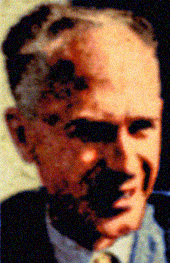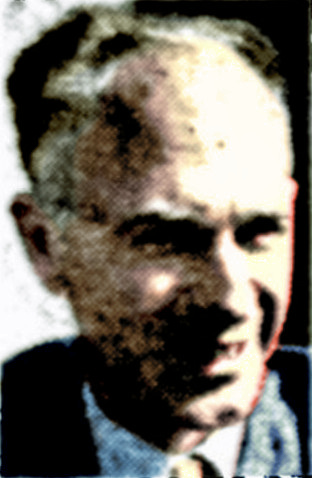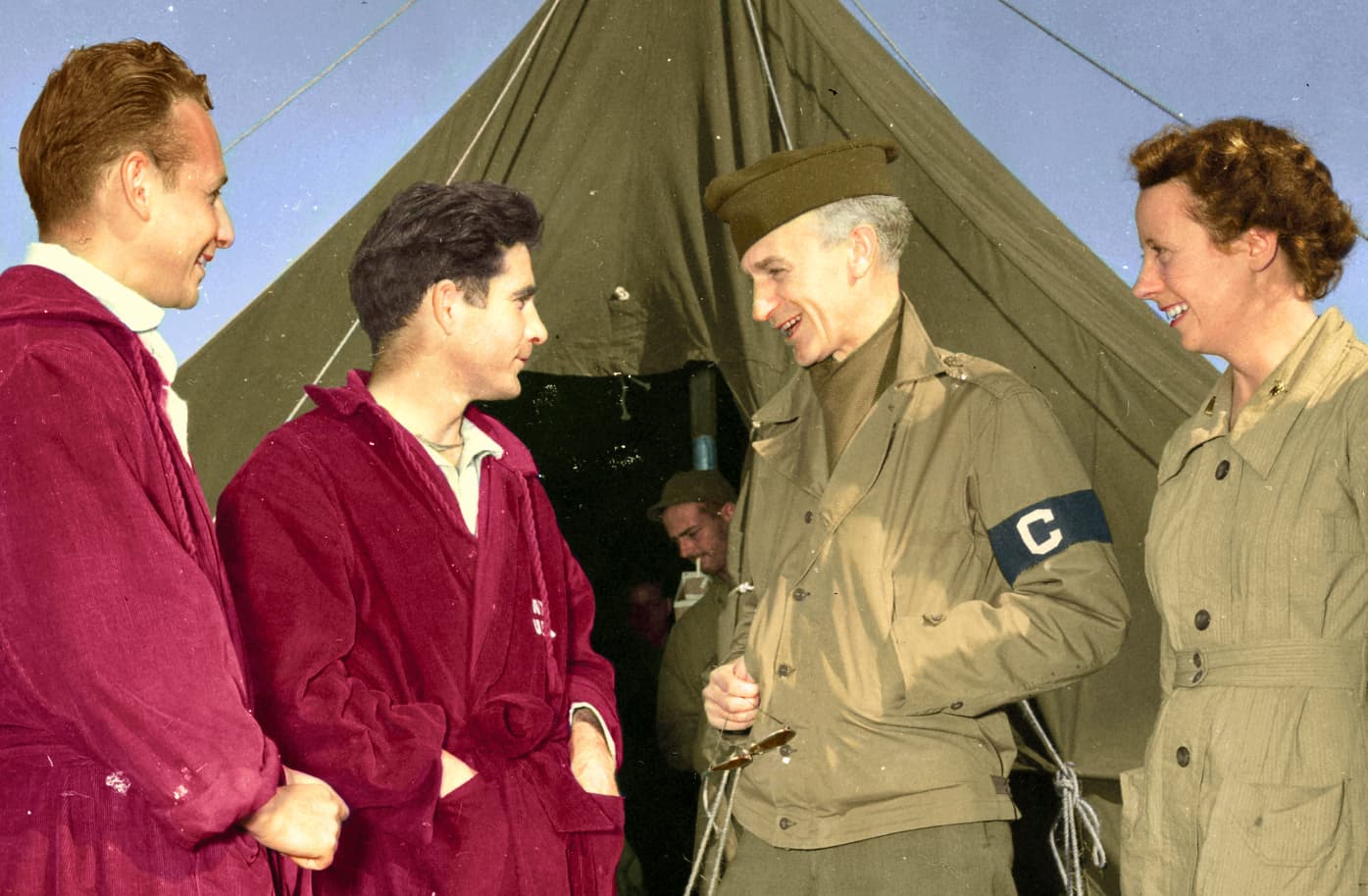The Pittsburgh Press (December 19, 1942)

Roving Reporter
By Ernie Pyle
WITH U.S. FORCES IN ALGERIA – Our troopship in convoy from England to Africa had a large hospital, and it was filled.
The long train rides in unheated cars across England seemed to give everybody a cold, and it was a poor man, indeed, who couldn’t sport a deathlike cough aboard ship.
We had two pneumonia cases, both of whom pulled through. I myself came down with one of the Ten Best Colds of 1942 the day after we got aboard, and spent the next five days in bed, feigning sickness.
But the ship was filled with Army doctors, so I had lozenges, injections and consultations, all without charge.
Our ship had never carried American troops before, and the British waiters were somewhat shocked by the appetites and the dining-room manners of the younger officers.
Second lieutenants, muscular and till growing, would order a complete second dinner after finishing the first. And in between times, they’d get up and serve themselves with bread, carry off their own plates, play loud tunes on their glasses with their forks, make rude jokes about the food, and generally conduct themselves in a manner unbecoming the dignity of a British cruise-ship waiter.
But I must say, on behalf of the British, that they finally broke down and entered into the spirit of the thing, and I think eventually enjoyed the Wild West camaraderie as much as the Americans did.
Meals are served in two sittings
Those of us in the cabins were awakened at 7 each morning by the cabin steward, bearing cups of hot tea. Meals were in two sittings, an hour apart. The headwaiter wore a tuxedo at dinnertime, and the food was excellent.
We had fried eggs and real bacon for breakfast every morning – the first real egg I’d tasted in four months. There was also tea in the afternoon, and sandwiches at night.
Smoking was prohibited in the dining room. The British waiters had a terrible time enforcing it, but finally succeeded. Apparently, it was just an old British custom.
There was a bar in the evening for soft drinks, but no liquor was sold. Some officers brought whisky aboard, but it was all gone after a day or two, and from then on, it was probably the driest ocean voyage ever made.
As someone wisecracked:
We catch it both ways. We can’t smoke in the dining room because it’s a British ship, and we can’t buy liquor because it’s an American trooper.
Of all the spots on earth where rumors run wild, I think a convoy trooper must lead, hands down. Scores of rumors a day floated about the ship. You got so you believed them all, or didn’t believe any.
Rumor started to end all rumors
It was rumored we would rendezvous with a big convoy from America; that an aircraft carrier had joined us; that we’d hit Gibraltar in six hours, 24 hours, two days; that the ship behind us was the West Point, the Mt. Vernon, the Monterey; that we were 80 miles off Portugal, and 200 miles off Bermuda. None of these turned out to be true.
The rumor-mongering got so rife that one officer made up a rumor to the effect that we were going to Casablanca, and timed it to see just how long it would take to encircle the ship. It came back to him, as cold fact right from the bridge, in just half an hour.
The third day out, we correspondents decided to start a daily paper. The colonel was all for it, and helped us round up paper and stencils. We published for four days and then ran out of stencils and had to suspend.
Sgt. Bob Neville, of Stars and Stripes, did most of the work. We carried the radio news each day, a little shipboard gossip column, a daily “exploded rumor” department, and some silly pieces by the correspondents.
Since we were not allowed to use the ship’s real name, the paper was called The P-58 Post, as that was our designated number in the convoy. Beneath the masthead was carried a motto: “All the Rumors Fit to Print.”
There was an unconfirmed rumor about the ship that it was a fairly rotten paper.


